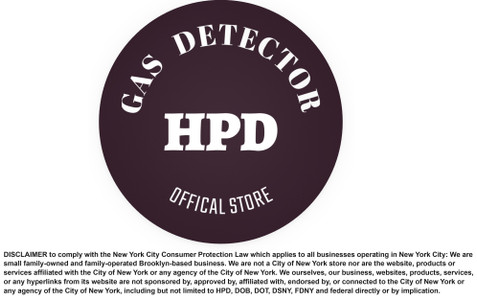The Importance of Natural Gas Detectors: Understanding Local Law 157
Natural gas detectors are critical safety devices designed to alert residents to the presence of natural gas leaks, which can pose significant risks of fire, explosion, and asphyxiation. Recognizing the importance of these detectors, New York City implemented Local Law 157, mandating the installation of natural gas detectors in residential buildings. This law represents a proactive step towards enhancing the safety and well-being of city residents, reflecting an increasing awareness of the dangers associated with natural gas leaks.
The Dangers of Natural Gas Leaks
Natural gas is a widely used energy source for heating, cooking, and other household utilities. Despite its efficiency and convenience, natural gas can be extremely dangerous if it leaks. Natural gas leaks can lead to fires and explosions, as the gas is highly flammable. Additionally, because natural gas is odorless, utility companies add a substance called mercaptan to give it a distinctive smell. However, this scent might not always be detectable, especially if the leak is small or if the residents have a reduced sense of smell. Moreover, natural gas can displace oxygen in the air, leading to asphyxiation, which can be particularly dangerous in enclosed spaces.
Local Law 157: A Proactive Safety Measure
To mitigate these risks, Local Law 157 was enacted, requiring the installation of natural gas detectors in all residential buildings. This law was designed to provide early warning of gas leaks, giving residents the critical time needed to evacuate and call emergency services before the situation becomes dangerous. The implementation of Local Law 157 underscores the city's commitment to public safety and its recognition of the potential hazards posed by natural gas leaks.
Enhancing Resident Safety
Natural gas detectors work by continuously monitoring the air for the presence of gas and sounding an alarm if levels become unsafe. This early detection is crucial in preventing the potentially catastrophic consequences of a gas leak. For residents, this means increased peace of mind, knowing that their living environment is continuously monitored for hazardous conditions. In apartment buildings, where a single gas leak can affect multiple units, the importance of such detectors cannot be overstated. They ensure that all residents are alerted promptly, reducing the risk of widespread harm.
Compliance and Implementation
Compliance with Local Law 157 is not only a legal requirement but also a moral imperative for property owners and managers. Installing natural gas detectors is a straightforward process that involves placing detectors in strategic locations, such as near gas appliances and in areas where gas lines run. Regular maintenance and testing of these detectors are also essential to ensure they function correctly. By adhering to these regulations, property owners contribute to a safer community and demonstrate their commitment to tenant safety.
Conclusion
In conclusion, natural gas detectors are vital for safeguarding residents against the dangers of gas leaks. Local Law 157 represents a significant advancement in public safety, mandating the installation of these essential devices in residential buildings. By providing early warnings of gas leaks, natural gas detectors help prevent fires, explosions, and asphyxiation, thereby protecting lives and property. Compliance with this law is crucial for ensuring the safety and well-being of all residents, making our living environments safer and more secure.




DISCLAIMER to comply with the New York City Consumer Protection Law which applies to all businesses operating in New York City: We are small family-owned and family-operated Brooklyn-based business. We are not a City of New York store nor are the website, products or services affiliated with the City of New York or any agency of the City of New York. We ourselves, our business, websites, products, services, or any hyperlinks from its website are not sponsored by, approved by, affiliated with, endorsed by, or connected to the City of New York or any agency of the City of New York, including but not limited to HPD, DOB, DOT, DSNY, FDNY and federal directly or by implication.
DISCLAIMER These codes may not be the most recent version. The State / federal or other regulation department may have more current or accurate information. We make no warranties or guarantees about the accuracy, completeness, or adequacy of the information contained on this site or the information linked to on the state site. Please check official sources.
The requirements for detector are determined by intended use and by applicable regulation. The BUYER is responsible for determining the appropriate detector needed. WE makes no warranty or representation of suitability of a detector to any code or for any specific application. IT IS THE CUSTOMER'S RESPONSIBILITY TO ENSURE THAT THE DETECTORS THE CUSTOMER ORDERS ARE IN COMPLIANCE WITH ALL STATE, FEDERAL, LOCAL, AND MUNICIPAL LAWS. Please review terms and conditions prior to purchase.
For more information about what is required, see the laws that are referenced and the rules applicable to your city and state. This page is for informational purposes only and is not intended as legal advice, professional advice or a statement of law. You may wish to consult with an attorney.
